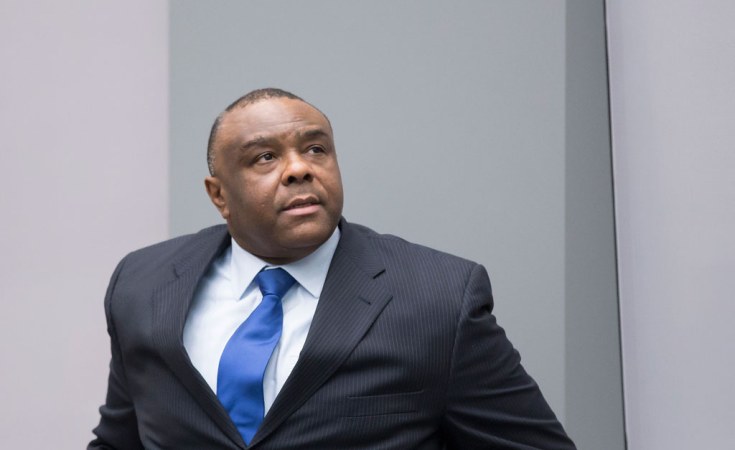Rwanda's Minister of Foreign Affairs, Vincent Biruta, has said that some international actors are adamant and don't want to recognise the eminent Genocide against Kinyarwanda-speaking Congolese in eastern DR Congo, despite several reports and evidence highlighting the facts.
While addressing members of the National Consultative Forum of Political Organizations, on Thursday, March 23, Biruta said: "Recognising Genocide goes hand in hand with the responsibility to prevent it from happening. The reason some international actors are hesitant about recognising a Genocide being planned in DR Congo is because it comes with a responsibility to intervene and stop it.
"They are dodging that responsibility but we keep reminding them."
He added: "In avoiding the responsibility to protect and stop the Genocide in DR Congo, international actors use ambiguous language in their statements when addressing concerns like hate speech."
In November 2022, the UN Special Advisor on Genocide Prevention, Alice Wairimu Nderitu, issued a statement condemning the escalation of violence in eastern DR Congo. She said that it was a "warning sign" in a region where genocide happened in the past, referring to the 1994 genocide against the Tutsi in Rwanda, where more than one million people were massacred in three months.
"The current violence is a warning sign of societal fragility and proof of the enduring presence of the conditions that allowed large-scale hatred and violence to erupt into a genocide in the past" Nderitu said.
Her official visit to the DR Congo from November 10-13, 2022, followed a technical-level mission by her Office that established that indicators and triggers contained in the UN Framework of Analysis for Atrocity Crimes were present in DR Congo.
The latter include: dissemination of hate speech and absence of independent mechanisms to address it; politicization of identity; proliferation of local militias and other armed groups across the country; widespread and systematic attacks, including sexual violence, against especially the Banyamulenge on the basis of their ethnicity and perceived allegiance with neighboring countries; and intergroup tensions.
The Special Adviser on the Prevention of Genocide acts as an early warning mechanism by alerting the UN Secretary-General and, through the latter, the Security Council - one of the six UN principal organs charged with ensuring international peace and security - to situations where there is a risk of genocide and presenting recommendations.
In eastern DR Congo, the current violence mainly stems from the refugee crisis that resulted as many individuals involved in the 1994 Genocide against the Tutsis in Rwanda fled to eastern DR Congo, forming armed groups such as the FDLR which is still active there, the Special Adviser said.
In response to the presence of this militia group, new armed groups were formed and the failure to bring non-state armed actors to book is "the consequence we now see," she added.
She noted that finding a solution to the ongoing conflict in eastern DR Congo would require addressing the underlying causes of the violence and learning lessons from the past.
Ndiretu noted that the abuses currently occurring in eastern DR Congo, "including the targeting of civilians based on their ethnicity or perceived affiliation to the warring parties" must be halted.
"Our collective commitment not to forget past atrocities constitutes an obligation to prevent reoccurrence," the Special Adviser stressed.
Reiterating her June 2022 statement issued jointly with then High Commissioner for Human Rights, Michele Bachelet, Nderitu expressed particular concern about the impact on civilians of the recent increase in hostilities between the M23 armed group and the Congolese armed forces, FARDC.
The statement had also expressed concern over an escalation of hate speech and incitement to discrimination, hostility, and violence nationwide - and specifically against the Kinyarwanda speaking Banyamulenge people.
"We keep reminding everyone about the situation in DR Congo...When it comes to Genocide, everybody should be concerned. And Rwanda is actually very concerned," said Biruta.
Emmanuel Gatera, the vice president of the Centrist Democratic Party (PDC), also expressed concerns about the "increasing toxic content on social media that is being pushed by genocidal groups like the FDLR which needs to be countered."
Alphonse Nkubana, the president of Party for Solidarity and Progress (PSP), questioned the international community's silence on the DR Congo's continued provocation of Rwanda in addition to the unrelenting acts of Genocide targeting Kinyarwanda-speaking Congolese.
The conflict in the eastern DR Congo is mainly fuelled by the leaders in Kinshasa, including President Felix Tshisekedi, who in November 2022, during a national address, encouraged Congolese youth to form "vigilante groups," - an act that resulted in incitement of mass violence.
According to Tito Rutaremara, a commissioner in the Rwanda Patriotic Front (RPF), in the face of a Genocide, any country has an obligation to intervene and stop it.
Rutaremara added: "These concerns raised shouldn't stop at just following up. This is exactly what happened here in 1994. When the Genocide against the Tutsi was being prepared and implemented, the international community was simply observing."
The UN and the East African Community have forces in DR Congo that should verify these concerns and address them, Rutaremara said.
Lack of political will
Minister Biruta said that the DR Congo government's lack of political will is frustrating regional peace efforts to restore normalcy in the vast country's volatile eastern region.
Biruta said: "However much we may want to have the situation addressed, DR Congo holds the upper hand and has the responsibility and obligation to address its internal issues."
"There has been very many agreements in relation to the issue of security in DR Congo starting from those signed in 2009, 2013, 2019, and so on. The problem is, DR Congo never implemented any of those agreements," Biruta added.
"When I refer to lack of political will, that's what I mean. It requires DR Congo to be more serious and implement all these agreements including recent ones that were signed in the framework of the East African Community, the African union. These agreements carry all the solutions to solve the problem but without political will, we won't achieve anything."


